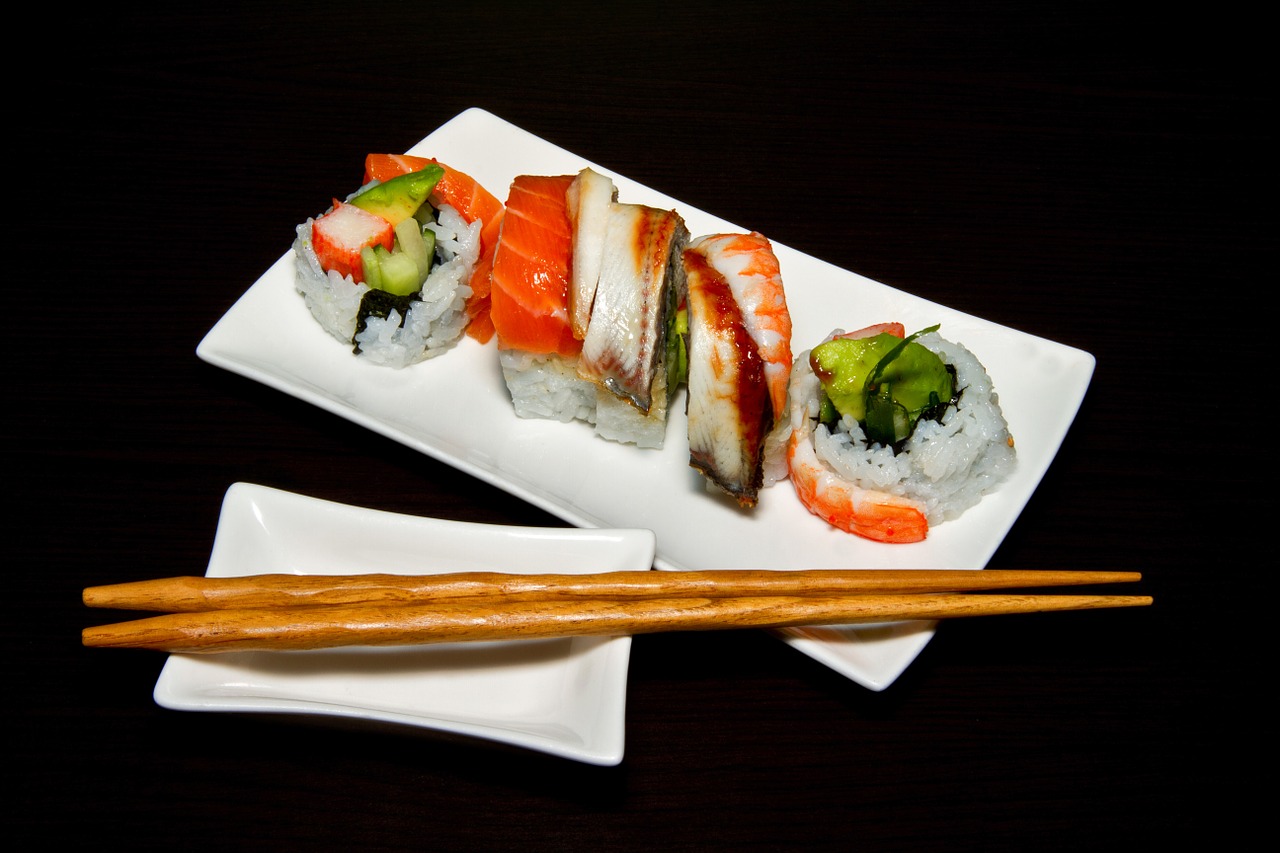
For many young people in Japan, August means summer vacation, festivals and free time. For fourth-year university students however, it means time to start interviewing for jobs. The job-hunting process in Japan is long, grueling and very systematic, culminating in interview after interview for the jobless, soon-to-graduate, young adults.
Interviews can be nerve-wracking for even the most experienced candidates, but Japanese companies don’t always ask the most predictable questions. In fact, some of their questions can be downright weird. Many of these oddball interview questions, however, may not actually be legal.
Governmental labor departments around the country have been amending labor equality laws in an effort to level the playing ground for all candidates and decrease discrimination.
▼ Have you ever been asked “How many times a week do you eat out?” during a job interview?
Questions about a thing such as dining habits may seem harmless, but they give the employer a pretty good look into your out-of-work lifestyle and standard of living. The Federation of Economic Organizations thinks that such questions can be discriminatory and should not be asked to potential employees.
Starting this August, employers are no longer allowed to ask questions which don’t relate to applicants’ aptitude for the work or professional duties.
Some of the questions that are now considered “NG” (no good), include:
1. “Where is your parents’ house? Is it north or south of the station?”/“Where is your permanent residence?”
This one was used a lot in the Osaka area until the labor department helped companies make some changes and took it out. It may seem like just a pretty silly question, but it has roots in discrimination against burakumin. Burakumin is an old term for the people on the bottom rung of the social hierarchy, dating back to the feudal days. This group was made up of people who did “impure” jobs, especially those dealing with death, such as executioners, undertakers, butchers, etc. The families of these workers were rejected by the rest of society, heavily discriminated against and often lived in segregated ghettos. With this in mind, job seekers are also advised to not write their family’s background information on personal history documents, such as CVs and resumés. Knowing where someone’s family is from could be a hint to lineage and influence an interviewers opinion of the candidate.
2. “Where does your father work?” / “What level of education did your parents receive?”
While these could also be related to burakumin discrimination, labor board consider these unfair because, regardless of the how educated or uneducated the candidate’s family members are, the candidate themselves holds no responsibility for what others have done, thus it should not overshadow their own abilities and achievements.
▼ Wouldn’t it suck if you couldn’t get hired because your parents don’t have a good education?
3. “How many times a month do you eat out?”
As mentioned above, questions such as these show insight to a person or family’s economic status and/or lifestyle standards. The candidate’s economic status is not related to their abilities at work.
4. “What political party do you support?” / “What’s your favorite book?”
Many times questions such as these are used in small-talk to break the ice and make the interviewees a little more relaxed, but an individual’s beliefs and preferences are personal freedoms that should not affect their opportunities in the workforce.
▼ “Really, that’s your favorite book? You’re so not hired.”
5. “Are you planning on having any kids soon?”
This question targets only women. Many women do indeed quit their jobs once they get married or start having kids, and it’s kind of understandable that companies would prefer to hire someone they know will be around until retirement, in the traditional Japanese salaryman way. However, such questions break gender equality laws, discriminating against young women who might want a family someday. (Not to mention how creepy it would be for the interviewer to ask a young woman if she is single or not!)
▼ “Oh, Ms. Gorilla, you’re trying to get pregnant? Sorry, we’re not hiring right now…”
The funny thing about this whole inappropriate interview question business, is that many of these questions have actually been banned since 1999, with many more amendments being added since 2013. Only now are departments of labor really cracking down on companies to perform fair interviews to all employees. Here’s to a big step in equal opportunity for all in the job hunt in Japan!
Source: Asahi Shinbun
Top Image: Pixabay/ OpenClipArtVectors
Insert Images: Pixabay/ Kaboompics, Patrice_Audet, marusya21111999, Yolanda





 New list of inappropriate Japanese job interview questions from prefectural labor department
New list of inappropriate Japanese job interview questions from prefectural labor department Teen job hunter learns: Do not screw around at an interview with McDonald’s Japan
Teen job hunter learns: Do not screw around at an interview with McDonald’s Japan Japanese ministers call for reform of company hiring practices that focus on new graduates
Japanese ministers call for reform of company hiring practices that focus on new graduates Real fashion police: Con man arrested in Tokyo, police tipped off by ill-fitting suit
Real fashion police: Con man arrested in Tokyo, police tipped off by ill-fitting suit Man forgets the first rule of Japanese job interviews: Don’t steal the boss’ wallet
Man forgets the first rule of Japanese job interviews: Don’t steal the boss’ wallet McDonald’s new Happy Meals offer up cute and practical Sanrio lifestyle goods
McDonald’s new Happy Meals offer up cute and practical Sanrio lifestyle goods All-you-can-drink Starbucks and amazing views part of Tokyo’s new 170 meter-high sky lounge
All-you-can-drink Starbucks and amazing views part of Tokyo’s new 170 meter-high sky lounge Studio Ghibli glasses cases let anime characters keep an eye on your spectacles
Studio Ghibli glasses cases let anime characters keep an eye on your spectacles More foreign tourists than ever before in history visited Japan last month
More foreign tourists than ever before in history visited Japan last month Beautiful Sailor Moon manhole cover coasters being given out for free by Tokyo tourist center
Beautiful Sailor Moon manhole cover coasters being given out for free by Tokyo tourist center Super Nintendo World expansion gets delayed for several months at Universal Studios Japan
Super Nintendo World expansion gets delayed for several months at Universal Studios Japan Hamster abandoned at Tokyo ramen restaurant gets new home
Hamster abandoned at Tokyo ramen restaurant gets new home “Half-naked men only in loincloths” drum battle returns to Hida festival for first time in five years
“Half-naked men only in loincloths” drum battle returns to Hida festival for first time in five years Track the stylistic evolution of Eiichiro Oda’s most famous One Piece characters
Track the stylistic evolution of Eiichiro Oda’s most famous One Piece characters Hello Kitty isn’t a cat!? We called Sanrio to find out!
Hello Kitty isn’t a cat!? We called Sanrio to find out! Disney princesses get official manga makeovers for Manga Princess Cafe opening in Tokyo
Disney princesses get official manga makeovers for Manga Princess Cafe opening in Tokyo Starbucks reopens at Shibuya Scramble Crossing with new look and design concept
Starbucks reopens at Shibuya Scramble Crossing with new look and design concept Beautiful new Final Fantasy T-shirt collection on the way from Uniqlo【Photos】
Beautiful new Final Fantasy T-shirt collection on the way from Uniqlo【Photos】 Is the new Shinkansen Train Desk ticket worth it?
Is the new Shinkansen Train Desk ticket worth it? Foreign English teachers in Japan pick their favorite Japanese-language phrases【Survey】
Foreign English teachers in Japan pick their favorite Japanese-language phrases【Survey】 Japanese convenience store packs a whole bento into an onigiri rice ball
Japanese convenience store packs a whole bento into an onigiri rice ball We try out “Chan Ramen”, an underground type of ramen popular in the ramen community
We try out “Chan Ramen”, an underground type of ramen popular in the ramen community Studio Ghibli releases Kiki’s Delivery Service chocolate cake pouches in Japan
Studio Ghibli releases Kiki’s Delivery Service chocolate cake pouches in Japan Japan’s bone-breaking and record-breaking roller coaster is permanently shutting down
Japan’s bone-breaking and record-breaking roller coaster is permanently shutting down New definition of “Japanese whiskey” goes into effect to prevent fakes from fooling overseas buyers
New definition of “Japanese whiskey” goes into effect to prevent fakes from fooling overseas buyers Our Japanese reporter visits Costco in the U.S., finds super American and very Japanese things
Our Japanese reporter visits Costco in the U.S., finds super American and very Japanese things Studio Ghibli unveils Mother’s Day gift set that captures the love in My Neighbour Totoro
Studio Ghibli unveils Mother’s Day gift set that captures the love in My Neighbour Totoro Foreign passenger shoves conductor on one of the last full runs for Japan’s Thunderbird train
Foreign passenger shoves conductor on one of the last full runs for Japan’s Thunderbird train Domino’s Japan now sells…pizza ears?
Domino’s Japan now sells…pizza ears? New Japanese KitKat flavour stars Sanrio characters, including Hello Kitty
New Japanese KitKat flavour stars Sanrio characters, including Hello Kitty Kyoto creates new for-tourist buses to address overtourism with higher prices, faster rides
Kyoto creates new for-tourist buses to address overtourism with higher prices, faster rides Sales of Japan’s most convenient train ticket/shopping payment cards suspended indefinitely
Sales of Japan’s most convenient train ticket/shopping payment cards suspended indefinitely Sold-out Studio Ghibli desktop humidifiers are back so Totoro can help you through the dry season
Sold-out Studio Ghibli desktop humidifiers are back so Totoro can help you through the dry season Japanese government to make first change to romanization spelling rules since the 1950s
Japanese government to make first change to romanization spelling rules since the 1950s Ghibli founders Toshio Suzuki and Hayao Miyazaki contribute to Japanese whisky Totoro label design
Ghibli founders Toshio Suzuki and Hayao Miyazaki contribute to Japanese whisky Totoro label design Doraemon found buried at sea as scene from 1993 anime becomes real life【Photos】
Doraemon found buried at sea as scene from 1993 anime becomes real life【Photos】 Tokyo’s most famous Starbucks is closed
Tokyo’s most famous Starbucks is closed One Piece characters’ nationalities revealed, but fans have mixed opinions
One Piece characters’ nationalities revealed, but fans have mixed opinions We asked a Uniqlo employee what four things we should buy and their suggestions didn’t disappoint
We asked a Uniqlo employee what four things we should buy and their suggestions didn’t disappoint Princesses, fruits, and blacksmiths: Study reveals the 30 most unusual family names in Japan
Princesses, fruits, and blacksmiths: Study reveals the 30 most unusual family names in Japan Four frustrating attitudes women in Japan run into when interviewing for jobs, grouped by age
Four frustrating attitudes women in Japan run into when interviewing for jobs, grouped by age Japanese husbands in survey say they do half the housework and childcare, wives say “Nope!”
Japanese husbands in survey say they do half the housework and childcare, wives say “Nope!” Japan fans call Rugby World Cup player Luke Thompson “kawaii” for the way he speaks Japanese
Japan fans call Rugby World Cup player Luke Thompson “kawaii” for the way he speaks Japanese Japan second-least attractive country for expats to work, survey says, but is it really that bad?
Japan second-least attractive country for expats to work, survey says, but is it really that bad? “They’re an army of clones!” This year’s Japanese new hires shock internet with their sameness
“They’re an army of clones!” This year’s Japanese new hires shock internet with their sameness Japanese university globalizes with fall start date, governor wants English as official language
Japanese university globalizes with fall start date, governor wants English as official language Japanese clothing chain offers an answer to job-hunting suit conundrum
Japanese clothing chain offers an answer to job-hunting suit conundrum Japanese reporters’ lame questions to tennis star Naomi Osaka embarrass netizens
Japanese reporters’ lame questions to tennis star Naomi Osaka embarrass netizens Japanese comedian apologizes for his many “multipurpose toilet affairs”
Japanese comedian apologizes for his many “multipurpose toilet affairs” Japanese new recruit fired after one month for being partially out of frame during video meetings
Japanese new recruit fired after one month for being partially out of frame during video meetings Can you guess the starting salaries at popular IT companies in Japan?
Can you guess the starting salaries at popular IT companies in Japan? Japanese lawyer comments on legality of tattoo ban at hot springs, netizens share thoughts too
Japanese lawyer comments on legality of tattoo ban at hot springs, netizens share thoughts too More than half of young anime workers live with their parents or receive money from them【Survey】
More than half of young anime workers live with their parents or receive money from them【Survey】 Over 30 percent of surveyed Japanese managers feel intense stress from working with foreigners
Over 30 percent of surveyed Japanese managers feel intense stress from working with foreigners “Be a blank slate”: The way to get hired in Japan?
“Be a blank slate”: The way to get hired in Japan? Survey by Japanese ministry reveals high rates of “maternity harassment” in workplace
Survey by Japanese ministry reveals high rates of “maternity harassment” in workplace
Leave a Reply